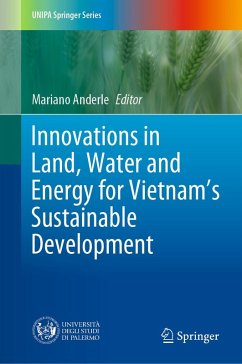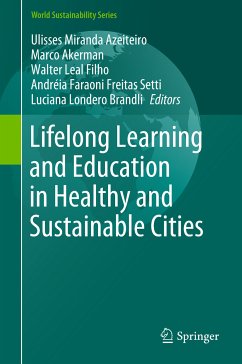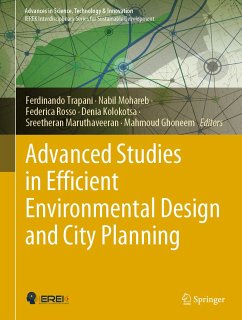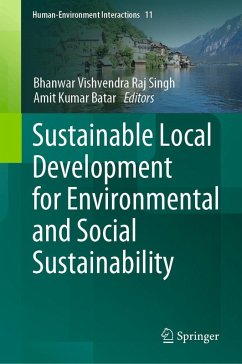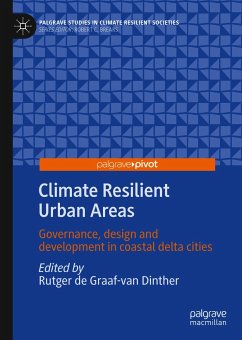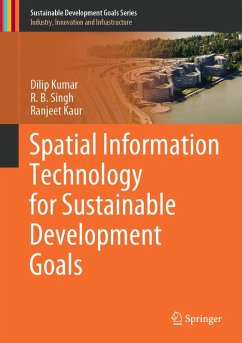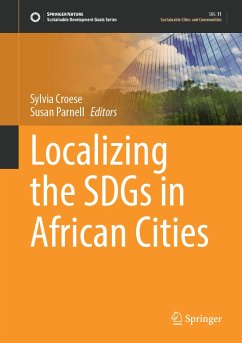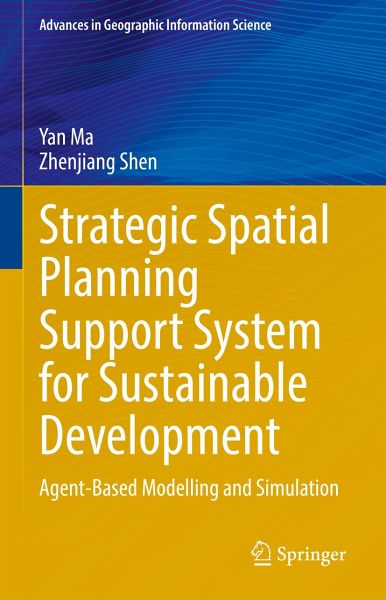
Strategic Spatial Planning Support System for Sustainable Development (eBook, PDF)
Agent-Based Modelling and Simulation
Versandkostenfrei!
Sofort per Download lieferbar
72,95 €
inkl. MwSt.
Weitere Ausgaben:

PAYBACK Punkte
36 °P sammeln!
This book introduces a planning support system called Strategic Spatial Plan Support System (SSP-SS) to visualize population growth and predict energy demand, land use, and waste discharge resulting from urbanization. By analyzing policy interactions between household agents, the book uses SSP-SS to visualize policy effects on urban areas during stages of growth and decline. Simulations are created based on these policy outcome assessments, taking into account the influences of energy and resource consumption on sustainable development in urban environments. The book is geared towards research...
This book introduces a planning support system called Strategic Spatial Plan Support System (SSP-SS) to visualize population growth and predict energy demand, land use, and waste discharge resulting from urbanization. By analyzing policy interactions between household agents, the book uses SSP-SS to visualize policy effects on urban areas during stages of growth and decline. Simulations are created based on these policy outcome assessments, taking into account the influences of energy and resource consumption on sustainable development in urban environments. The book is geared towards researchers, universities, and urban policy makers. The book begins by presenting a framework of urban growth simulation, and introducing SSP-SS. Then, household lifecycle and relocation models are employed for simulating policy impacts on urbanization, and investigating the impacts of spatial strategic planning. Several projects are assessed using agent-based modeling including shopping centre construction, day-care service for aging populations, and shelter accommodation capacities for earthquakes and other disasters. The final chapters discuss water and energy management, the environmental impacts of demand and consumption, and future recommendations for sustainable development and policy implementation.
Introduces Strategic Spatial Plan Support System (SSP-SS) to visualize population growth and predict energy demand, land use, and waste discharge resulting from urbanization.
Analyzes policy effects on urban areas during stages of growth and decline.
Discusses the influences of water and gas consumption on environmental issues in urban areas for sustainable development.
Dieser Download kann aus rechtlichen Gründen nur mit Rechnungsadresse in A, B, BG, CY, CZ, D, DK, EW, E, FIN, F, GR, HR, H, IRL, I, LT, L, LR, M, NL, PL, P, R, S, SLO, SK ausgeliefert werden.




